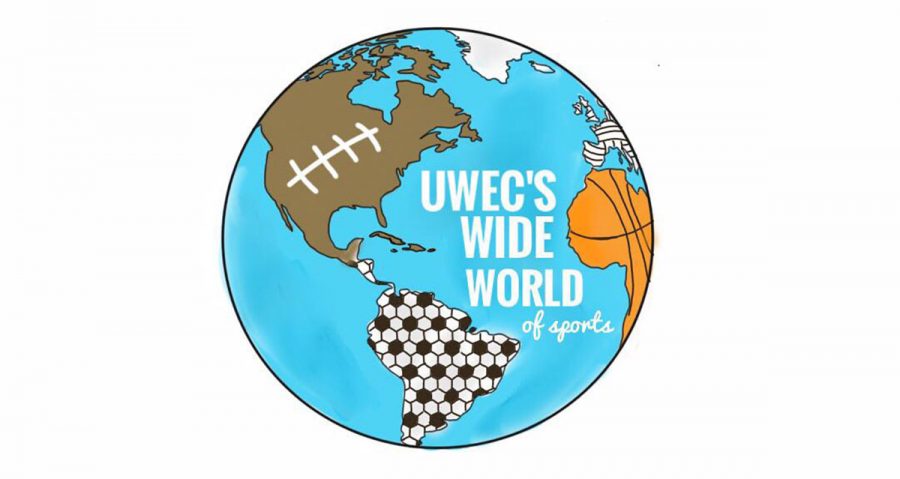UWEC’s Wide World of Sports
More stories from Lauren Spierings
Photo by SUBMITTED
The greatest ideas are sometimes found through hours of deliberation and pondering. Other times, the best ideas are thought of through a night at the pub with friends. For the Man Versus Horse Marathon, inspiration strikes with the latter.
Taking place in Llantwrtyd Wells in Wales, the Man Versus Horse Marathon is not the first sport to emerge from the pubs of the small town. Bog snorkeling is another sports competition that sprung from a pub conversation and holds international interest.
According to Runner’s World, locals at the Neuadd Arms pub bet whether a man could outrun a horse or not in June 1980. Since then, the races have started at Neuadd Arms every year following the conception of the event.
Six-hundred and fifty runners take to the course as 60 teams of horses and their riders race to beat them across the bogs, steep hills and other terrains to cross the finish line first.
According to The Washington Post, competitors race roughly 22 miles, however, other sources say that the marathon is up to 24 miles long.
According to Green Events, competitors race for a cash prize; however it is only awarded if a human wins. If a human does not win the marathon that year, the cash prize rolls over to the next year, increasing the amount. Each year, 500 pounds is added to the pot.
Can a human actually outrun a horse in a race? The answer is yes, if the conditions are favorable.
To put it into perspective, Usain Bolt — the fastest man alive — can cover 100 meters in 9.58 seconds. According to NPR, a cheetah covers that in roughly 5.95 seconds.
However, the human body has several adaptations that make humans adept endurance runners. According to NPR’s Skunk Bear, the semicircular canal in the ear keeps the body in balance. Humans also have springier tendons in their limbs than primates do that allow a person to bounce as they run.
Humans also have narrow waists and a large gluteus maximus (butt) that helps stabilize the trunk of the body.
Most animals are faster than humans. However, due to humankind’s bigger brains, endurance and ability to sweat and cool down, humans have a competitive edge, CNN said.
If someone was to keep running at a steady pace long enough, they could eventually catch up to any animal because the animal would tire out before the human.
24 years after the marathon was first organized, a human finally beat a horse in the marathon. Huw Lobb won the marathon in 2004 with a time of two hours and five minutes. The first horse to finish followed Lobb across the finish line two minutes later.
Three years later, the feat was repeated by Florien Holtinger. According to Green Events, the two are the only ones to achieve beating the horse. The pot for the 2020 marathon is at 3,500 pounds.
The next Man Versus Horse Marathon for 2020 is June 13. Find more information about the marathon at www.green-events.co.uk/?mvh_main.
Spierings can be reached at [email protected].

Timothy Spierings is a fourth-year Spanish and journalism student. This is their eighth semester on The Spectator staff. They enjoy trying all types of new foods and listening to new music artists and are currently trying to learn the bass guitar.










